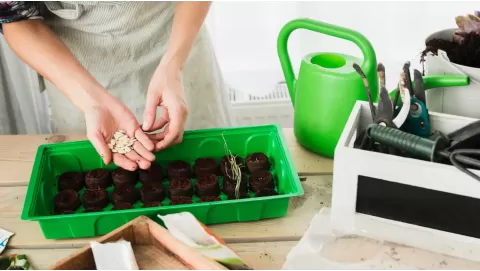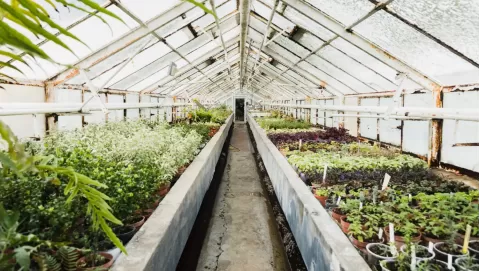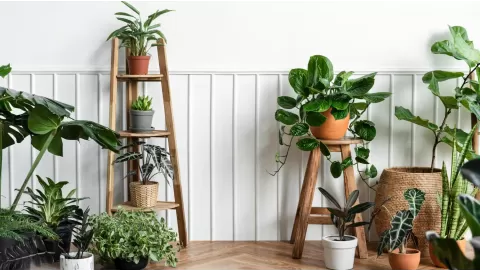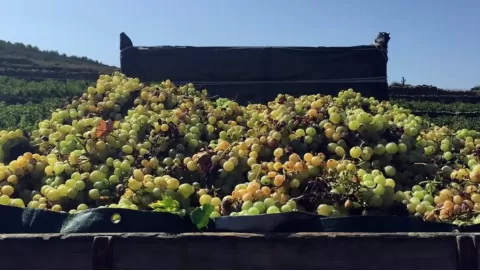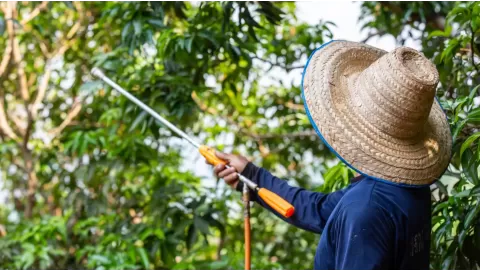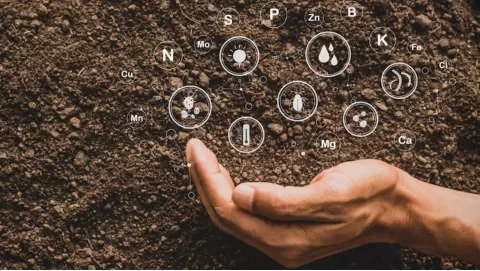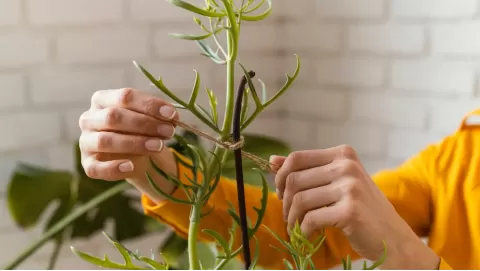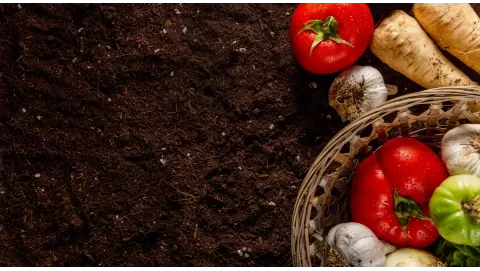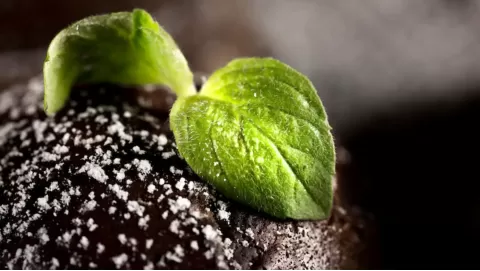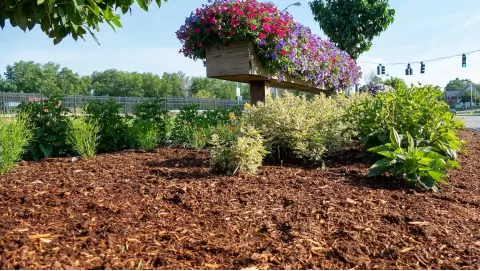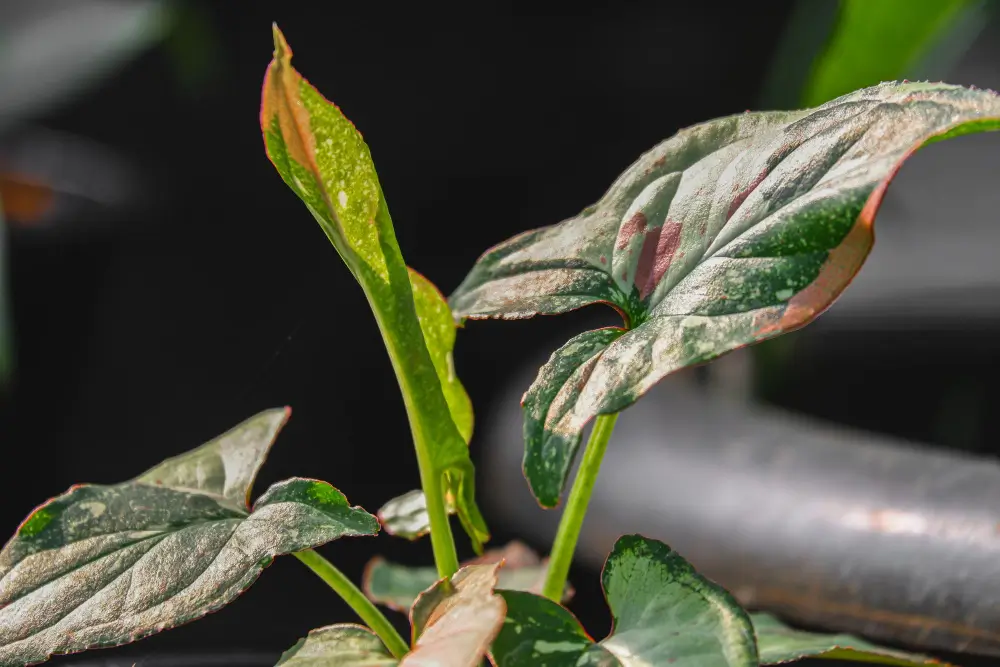
Everything you need to know about copper fungicide for plant health
Keeping up a lovely garden isn't an easy job. Plant infections can frequently ruin the garden. Which is where this copper fungicide acts like the gardner's best friend. It can help them ensure a healthy garden and kill fungi and bacteria with not-so-friendly purposes for plants.
Gardeners need copper fungicides. They help plants stay healthy and strong. These products have been on the market a long time and are effective on a wide variety of fungal diseases that could damage your gardens and crops. It is an all natural solution to fungus related infections and does not have an adverse effect on environment or plant life.
The copper ions in the fungicide attach themselves to proteins in the fungi and bacteria, interfering with the organisms’ ability to carry out cellular processes and, eventually, causing them to die. The fungicide comes in various forms:
- copper hydroxide
- copper oxychloride
- copper sulfate
They each serve specific purposes and offer a unique use case for gardening.
Growcycle is the best supplier of copper fungicides that users can find. They provide premium products that work and are simple to use. Their copper fungicide is for all you garden lovers and plant lovers out there. Once this is done the plants will thrive.
Common Disorders Managed with Copper Fungicide
Many vegetable and fruit diseases can be cured with copper fungicide. It may help manage the following common problems:
- Late Blight
It is a disease that affects tomatoes and potatoes and can result in a devastating loss of crop. Copper fungicides may help protect from and control late blight.
- Powdery Mildew
Powdery mildew is something that most plants will suffer from. It creates a white, powdery film on leaves. Copper sprays can do a good job in controlling this disease.
- Black Spot
Roses that have black spots, a fungal disease. It leads to black spots on leaves and defoliation. Copper fungicide can help control this disease.
How to Apply Copper Fungicide?
To make the most of copper fungicides, growers should adhere to several best practices. These are the ones that will give you the best results. Correct use of copper fungicide is important to its success. To ensure the best results, follow these steps:
1. Study the Label
As always, before applying any fungicide, read the label. Know the application rates and safety measures. This will help to avoid overuse and potential harm to the plants.
2. Timing
Use copper fungicide during early and late in the day. This is to prevent leaf burn due to direct sunlight. It’s also preferable to apply it in dry weather so it sticks to plant surfaces.
3. Area to Cover
Make sure all plant surfaces are completely covered — including the undersides of the leaves. This will in turn guard your entire plant against the spread of the fungus spores.
4. Handling and Storage
To be effective and safe, copper fungicides must be managed and stored correctly. Store these someplace dry and cool. Avoid subjecting them to severe environmental conditions and direct sunlight. Also, as they may be poisonous if eaten, they ought to be stored safely away from kids and pets.
Uses of Copper Fungicide
Copper fungicide is a useful one. It’s effective with a host of plants, including trees, ornamentals, fruits, and vegetables. Some common uses include:
Vegetable Gardens: Prevent blights and molds on tomatoes, peppers and cucumbers.
Fruit Trees: Continue to protect apple and pear trees from leaf spots and fire blight.
Ornamentals: Keep roses, hydrangeas, and blooming plants such as hibiscus looking their best by protecting against fungal disease.
Advantages of Copper Fungicide Use
There are several advantages to applying copper fungus in the yard:
- Wide-Spectrum Management
Copper fungicide is effective for treating many bacterial and fungal diseases. Whether it’s blight, mildew or leaf spots, copper fungicide can help gardeners protect their plants.
- Environmental Safety
Copper fungicide is not a man-made product like synthetic chemicals. When it is used correctly there is no significant environmental threat. It decomposes slowly, therefore decreasing the chance of the material getting washed into water supplies.
- Protection of Beneficial Microorganisms
Copper fungicides have no adverse effect on beneficial insects such as bees or other beneficial insects such as earthworms. This is very important for maintaining a healthy environmental condition of the use of Homesteads of these practices of farming and gardening.
Copper fungicides are also applied in integrated pest management. Such tactics are intended to save crops and the environment. They do so by decreasing the use of hazardous chemicals, and increasing the use of natural control mechanisms.
- Adequate Supply of Copper Nutrient
As a part of soil nutrients, copper is one of indispensable micronutrient element for plants. Many applications require it. Gardeners can give their plants extra micronutrients with copper fungicides. This is beneficial for plant health and vigour. This is especially useful in places where there might be a deficiency in copper that can cause dwarfism of the plants and decrease the yield.
Tips for Maintaining Healthy Plants
Copper fungicide is essential to good plant health. But gardeners have other ways of looking out for them. Here are some more suggestions:
- Proper Planting: Plant in appropriate soil and sun exposure. This will encourage good growth and resistance to diseases.
- Regular Maintenance: If possible maintain a clean garden and always remove leaves, branches and overall dead things because those are the places that fungus like to grow.
- Water Properly: Watering at the base of the plant helps to prevent leaves from becoming too wet (which promotes mould growth) and keeps the soil regularly moist (which as previously mentioned is a good thing).
- Rotate Crops: Crop rotation should be practiced seasonally, and it’s a process that can help prevent the buildup of pathogens in the soil, as well as maintaining nutrient levels in the soil.
Safety Precautions When Using Copper Fungicide
On the safe side, the gardener needs to make sure he uses some precautions when applying copper fungicide:
Use Protective Gear
Wear gloves and long sleeves when you apply copper fungicide. You will also want to shield your eyes. It will help prevent skin and eye damage from potentially freed up chemicals.
Do Not Overuse
Copper build up in the soil can occur from excessive applications of a copper based fungicides. This accumulation can be detrimental to plants and soil microorganisms. Dosed so as to adhere to the recommended application rates.
FAQs
Is it safe to apply copper fungicide on plants that humans will consume?
Yes, copper fungicide is safe for edible plants, provided the user follows the instructions on the label.
How often should I apply a copper fungicide?
The particular product and the level of disease pressure in the garden will determine how often it needs to be applied. Copper fungicides should be applied approximately every 7–10 with heavy rain. Read the product label for full product instructions.
Are people and pets safe when copper fungicide is used?
The answer is yes if you use the copper fungicide as directed by the manufacturer on the label. Applications must be kept away from the play areas of the home or building. And, keep products away from children and animals.
The Bottom Line
Copper fungicide can be a fantastic tool for gardeners or farmers who are seeking to protect their plants from potentially devastating threats like bacteria and fungi. the pragmatics of farming and gardening for novices and experts alike.
By following the advice provided in this article, copper fungicide can help individuals support a lush and thriving garden. But if they are to give good returns, they need to be used in conjunction with some of the others treatments as part of an integrated pest management programme, and they need to be used properly, together with good cultural practices.
Liquid copper concentrate solutions are available through Growcycle. They also share their best pest management tips to keep the garden blooming. Both of these products do a good job controlling funguses in different plants.
Disclaimer: This material is for informational purposes only and should not be relied on for legal, medical, financial, or any other form of professional advice.


